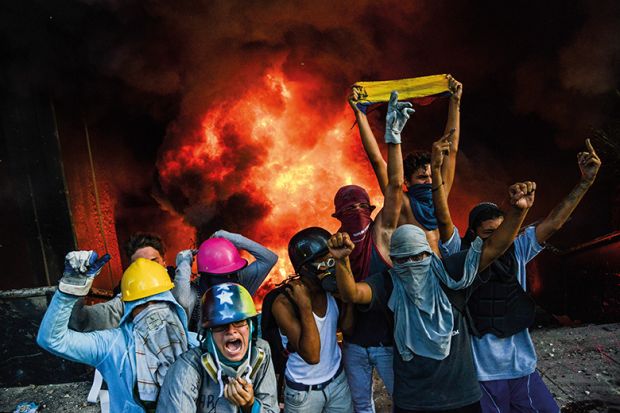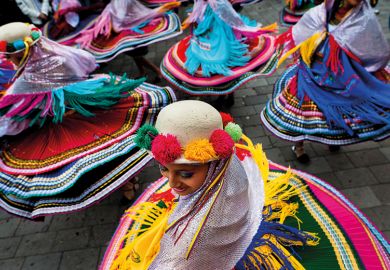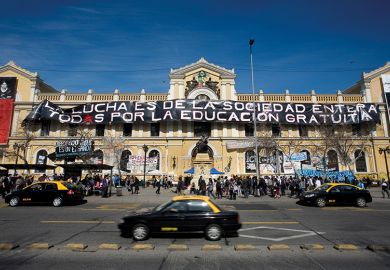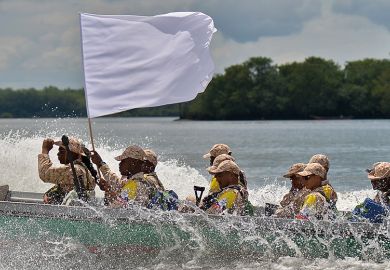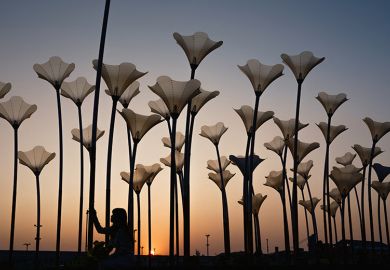Browse the full Times Higher Education Latin America University Rankings 2018 results
Almost two-thirds (61 per cent) of Venezuelans now live in extreme poverty, according to the 2017 National Survey of Living Conditions (Encovi), conducted by researchers at the Central University of Venezuela, Andrés Bello Catholic University (UCAB) and Simón Bolívar University and published in February.
The government has deliberately destroyed private entrepreneurship in the country, with more than 200,000 mid-sized and major industries closing in the past 13 years. All industries and farms that have been expropriated by the state are either not producing to capacity or have been destroyed. The decline in oil production is evident.
As a result of the country’s economic crisis, which was caused primarily by controls on private commercial activity and overbearing governmental control, record numbers of Venezuelans have left the country since 2016.
Last year, tens of thousands of people took to the streets to protest. The demonstrations resulted in about 165 recorded deaths and more than 15,000 injuries. About 5,000 people were detained, and some of them were beaten, sexually assaulted or given electric shocks.
The crisis has paralysed Venezuelan universities. But it is not just economic problems that have hobbled higher education. The state has created several new institutions that are universities in name only – they are inadequately staffed (they lack qualified teachers and high-calibre researchers), and have poor infrastructure (they have little in the way of libraries, modern IT equipment and internet access, laboratories and research facilities). Not only that, the government has destroyed autonomous universities by reducing their budgets and restricting university autonomy itself.
Since March, the University of Zulia in Maracaibo has reduced its teaching activities to three days a week because students and teachers have struggled to attend.
According to the rector of the University of Oriente in Cumaná, 25 per cent of teachers and 40 per cent of students have withdrawn.
The National Experimental University of Táchira also recently announced the suspension of its academic activities because of a lack of funds.
Academics across the country have reported that they cannot afford to pay bus fares or to repair or refuel their cars to get to class.
The academic secretary of Central University has reportedly said that in some weeks he signs up to 3,000 degree certificates for “graduates who leave” the country.
Between them, Central University, UCAB and Simón Bolívar are estimated to have lost more than 1,000 teachers in the past five years.
The inadequate state financing for undergraduate teaching, the elimination of funding programmes for research and postgraduate studies, the lack of scholarship schemes and the low academic salaries have forced universities to suspend postgraduate programmes and to eliminate lines of research.
When political conditions in the country eventually change, an enormous effort should be made to ensure that universities and research institutes regain the status that they enjoyed until the end of the last century. Yet this will be difficult because a new government will need to tackle other areas – such as poverty, health and the ailing economy – that are of equal or greater importance and always turn out to be more pressing than education.
Some of the qualified professionals who have emigrated will surely return to the country, but not all will be able to do so. Therefore, it will take some years and a lot of substantial policies, resources, commitment and effort for Venezuela to have once again internationally competitive universities.
However, some university professors, researchers and students are willing to stick with Venezuela and its universities. This is a noble sacrifice and undertaking. In this devastated country, it is a great achievement to think about publishing a paper or preparing a good-quality class for students.
One way to help safeguard teaching and research is through international cooperation, such as joint research projects with international peers, more opportunities for Venezuelan academics to attend international scientific conferences and arrangements for visiting overseas professors to deliver courses.
More junior academics in Venezuela need opportunities to spend time, even short periods, in research laboratories in other parts of the world to carry out part of a research project or complete a PhD thesis.
Without such help from the international academic community, higher education in Venezuela will be damaged even further.
Claudio Bifano is professor of chemistry at the Central University of Venezuela.
Register to continue
Why register?
- Registration is free and only takes a moment
- Once registered, you can read 3 articles a month
- Sign up for our newsletter
Subscribe
Or subscribe for unlimited access to:
- Unlimited access to news, views, insights & reviews
- Digital editions
- Digital access to THE’s university and college rankings analysis
Already registered or a current subscriber?
